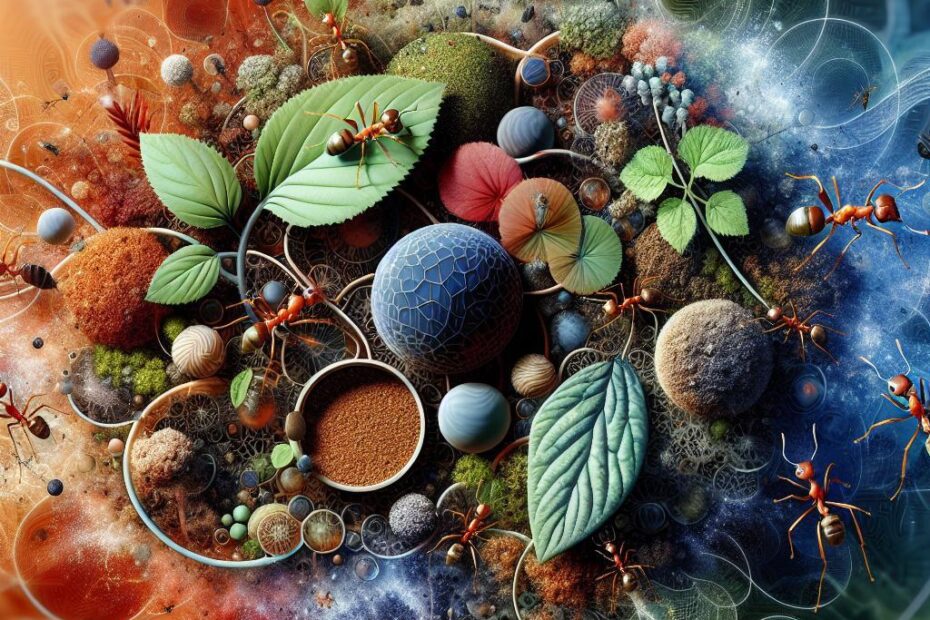Ants are fascinating creatures that play a crucial role in our ecosystem. One interesting behavior that ants exhibit is gardening. Yes, you read that right – ants are gardeners too! Ants cultivate gardens not with plants like humans do, but with soil. This phenomenon, known as “ants garden soil,” is a unique and intricate process that helps ants thrive in their environment.
In this article, we will delve deeper into the world of ants garden soil, exploring the reasons behind this behavior, its benefits, and practical tips for managing ant gardens. Whether you are a nature enthusiast, a gardener, or simply curious about the natural world, this article will provide valuable insights into the fascinating world of ant gardening.
Why do Ants Garden Soil?
Ants garden soil as a means of creating a suitable habitat for their colonies. Just like humans cultivate soil to grow plants, ants manipulate soil to create optimal conditions for their survival. Ants excavate, transport, and manipulate soil to build intricate tunnels and chambers that serve various purposes within their colonies.
Benefits of Ants Garden Soil
- Improved Ventilation: Ant tunnels help to aerate the soil, allowing for better circulation of air and water.
- Enhanced Drainage: The tunnels created by ants allow excess water to drain more efficiently, reducing the risk of waterlogging.
- Nutrient Recycling: Ants improve soil quality by breaking down organic matter and recycling nutrients, promoting soil fertility.
- Seed Dispersal: Some ant species transport seeds into their colonies, helping with seed dispersal and germination.
- Protection from Predators: Ant colonies provide a safe haven for many beneficial organisms that help regulate pests in the garden.
Practical Tips for Managing Ant Gardens
If you have noticed ant activity in your garden and want to manage their presence effectively, here are some practical tips to consider:
- Natural Repellents: Consider using natural repellents like diatomaceous earth or cinnamon to deter ants from nesting in unwanted areas.
- Disturbance: Avoid disturbing ant colonies unnecessarily, as this can lead to aggression and increased ant activity.
- Environmental Modifications: Make modifications to your garden environment, such as reducing excess moisture and clutter, to discourage ant colonies from settling in unwanted areas.
- Professional Help: If you have a severe ant infestation that you cannot manage on your own, consider seeking professional help from pest control experts who specialize in eco-friendly solutions.
Case Study: Ants in My Vegetable Garden
Last summer, I noticed an increase in ant activity in my vegetable garden. While ants can be beneficial in some ways, their presence was starting to affect the health of my plants. After conducting some research, I decided to implement natural repellents and make environmental modifications to discourage ants from nesting near my crops. With patience and persistence, I was able to manage the ant population effectively without harming the environment or my plants.
Conclusion
Ants garden soil as a means of creating a conducive habitat for their colonies. This unique behavior has several benefits for the environment and can be managed effectively with the right approach. By understanding the reasons behind ant gardening, the benefits it provides, and practical tips for managing ant colonies, you can coexist harmoniously with these fascinating creatures in your garden. Remember, ants play a vital role in our ecosystem, so it is essential to appreciate and respect their presence in our environment.
